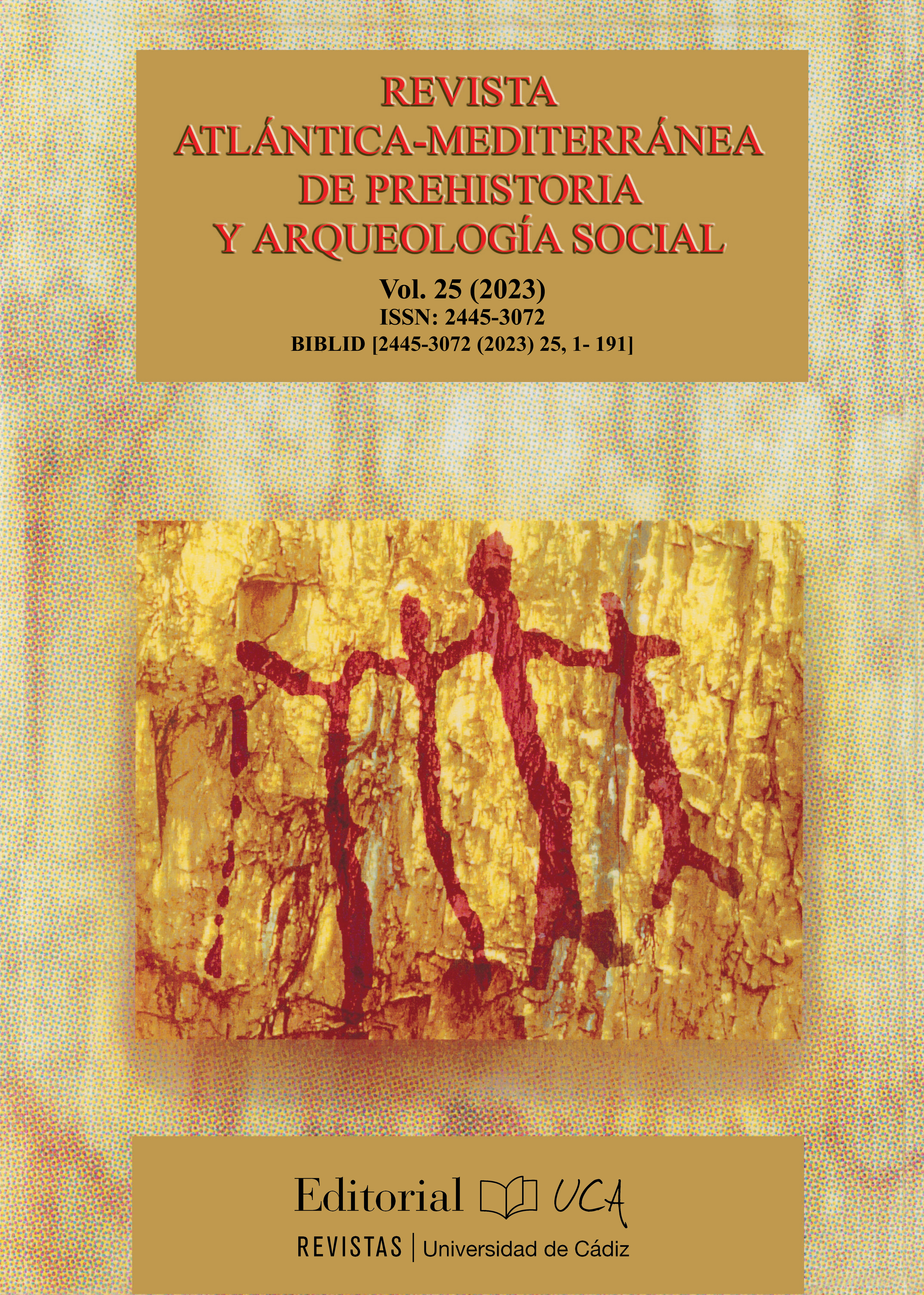Cultural evolution a darwinian reading of history

DOI
https://doi.org/10.25267/rev_atl-mediterr_prehist_arqueol_soc.2023.v25.01Info
Abstract
The prism of evolution, as understood in biology from the proposals of Charles Darwin, offers us new parameters and new conceptions to understand typically historical phenomena: the social and economic organization of human populations, their growth, the competition between them, and the so-called historical progress. Today, there are researchers who, despite considering the theory of evolution in order to explain variation and change in human biology, reserve a space that continues being differentiated for the human mind, symbolism and consciousness. The author’s purpose is to place all human complexity under the orbit of Darwinian evolution. Even the base of symbolism, which is at the root of social organization, language, art, etc.; of everything we call culture with capital letters. Surely, the effective and efficient control of space resources led to sufficient population growth so that many populations had to move to new areas and territories in a kind of territorial explosion of hominins that led many groups to other continents. Cultural adaptations do not start suddenly, but have a long history and prehistory. Cumulative evolutionary processes seem the norm. These processes, which make to draw boundaries within human evolution difficult, also prevent a distance between humans and our closer ape relatives. In the same way that more and more complex systems have appeared in the biosphere, both in terms of species and their relationships, in human history there is a growth of complexity, too. We have learned that this complexity is not a law, that complexity breaks down, that highly complex societies have also disappeared, they have become extinct, like species. And this should serve us to both analyse and understand the past and to prospect the future.
Keywords
Downloads
How to Cite
References
BENJAMIN, Walter. 1971 [1942]: “Tesis de filosofía de la historia”. En: Angelus novus, pp. 77−89. Edhasa. Barcelona.
BENJAMIN, Walter. 2003 [1936]: La obra de arte en la era de su reproductibilidad técnica. Ítaca. México, D. F.
BENJAMIN, Walter. 2007 [1983, póstumo]: Libro de los pasajes. Akal. Madrid.
CARBONELL, Eudald; HORTOLÀ, Policarp. 2013: “Hominización y humanización, dos conceptos clave para entender nuestra especie”. Revista Atlántica-Mediterránea de Prehistoria y Arqueología Social (RAMPAS), 15, pp. 7−11.
CHILDE, Vere G. 1960 [1944]: Progreso y arqueología. Dédalo. Buenos Aires.
FAGAN, Brian M. 2008 [2000]: La Pequeña Edad de Hielo. Cómo el clima afectó a la historia de Europa 1300–1850. Gedisa. Barcelona.
FAGAN, Brian M. 2010 [1999]: La corriente de El Niño y el destino de las civilizaciones. Inundaciones, hambrunas y emperadores. Gedisa. Barcelona.
LEVI MONTALCINI, Rita. 2000 [1999]: La galaxia mente. Crítica. Barcelona.
MORGAN, Lewis H. 1970 [1877]: La sociedad primitiva. Ayuso. Madrid.
SALADIÉ, Palmira; HUGUET, Rosa; RODRÍGUEZ-HIDALGO, Antonio; CÁCERES, Isabel; ESTEBAN NADAL, Montserrat; ARSUAGA, Juan Luis; BERMÚDEZ DE CASTRO, José María; CARBONELL, Eudald. 2012: “Intergroup cannibalism in the European Early Pleistocene: the range expansion and imbalance of power hypotheses”. Journal of Human Evolution, 63 (5), pp. 682−695.
TYLOR, Edward B. 1975 [1871]. “La ciencia de la cultura”. En J. S. KAHN (comp.): El Concepto de cultura: textos fundamentales. Escritos de Tylor (1871), Kroeber (1917), Malinowski (1931), White (1959), y Goodenough (1971). Anagrama. Barcelona.






